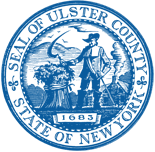From the desk of the Registered Dietician: Nancy Nissen, RD, Chief Clinical Dietician
Fats, perhaps more than any other part of the average diet, cause much interest and confusion. Fat is very important to our physical health. It is necessary for the absorption of certain vitamins, including vitamins A, D, E, and K. It seems that everyone has an opinion on fats—how much to eat, what kind to eat, etc. The national dietary guidelines recommend that 30% of our total calories come from fat. No one should consume a diet that contains less than 15% of total calories from fat on a regular basis. Here are some facts about fat and oils and how to choose the healthiest type of fats to consume and which ones you should limit.
Trans fat: This man-made fat helps to increase the shelf life of foods. Trans fat increases your LDL (bad) cholesterol and decreases your HDL (good) cholesterol. Trans fat (also known as partially hydrogenated oils) are listed as an ingredient on food labels. If possible, avoid all trans fats. This is getting easier to avoid as many food companies have eliminated trans fats from their products. Note: many trans fats are being replaced by tropical oils which are saturated fats which should be limited.
Saturated fat: Saturated fats occur naturally in many foods. The majority come mainly from animal sources, including meat and dairy products. Saturated fats increase the level of total cholesterol and LDL (bad) cholesterol in your blood. High levels of blood cholesterol increase your risk of heart disease and stroke.
Saturated fat raises your LDL cholesterol level more than anything else you eat. It is found in: Fatty cuts of meat, Poultry with skin, Whole-milk dairy products, Tropical oils, such as coconut, palm kernel, and palm oils, Fried foods, Lard and cream, Many snacks and sweets
Monounsaturated fats: By replacing saturated fats with monounsaturated fat you can lower your LDL cholesterol and increase your HDL cholesterol. Olive oil and canola oil have a high percentage of monounsaturated fat. But remember that just 1 tablespoon of oil contains approximately 14 grams (g) of fat and 120 calories; so, although it is the healthier fat, you still need to use it in small amounts.
Other foods rich in monounsaturated fats are: Olives, Avocados, Peanut butter, Many nuts and seeds
Omega-3 fatty acids: Omega-3 fatty acids are another type of healthy fat (polyunsaturated). Omega-3 fatty acids benefit the heart of healthy people, those at high risk, and those who have heart disease. The American Heart Association recommends eating a variety of fish (preferably fatty fish like mackerel, lake trout, herring, sardines, albacore tuna, and salmon) at least twice a week. Other foods rich in omega-3 fatty acids include: Flaxseed, canola, and soybean oils, Flaxseed, Walnuts.

